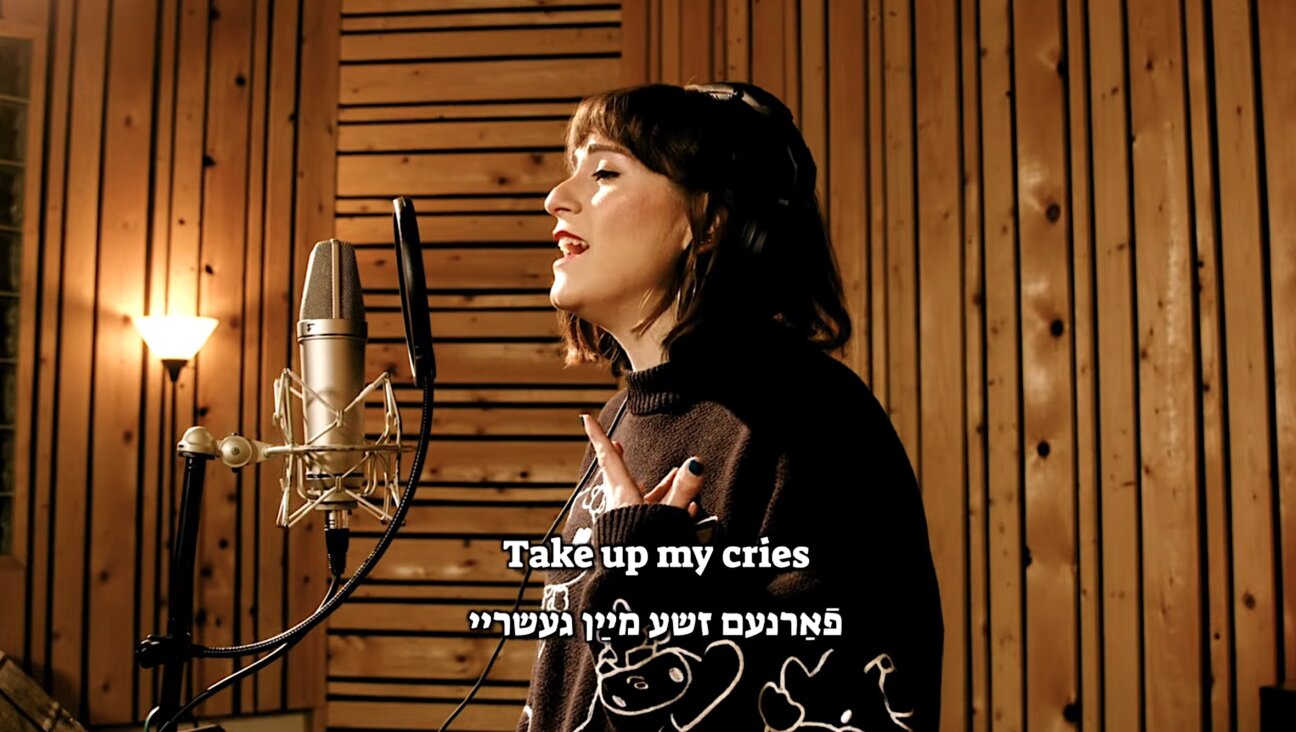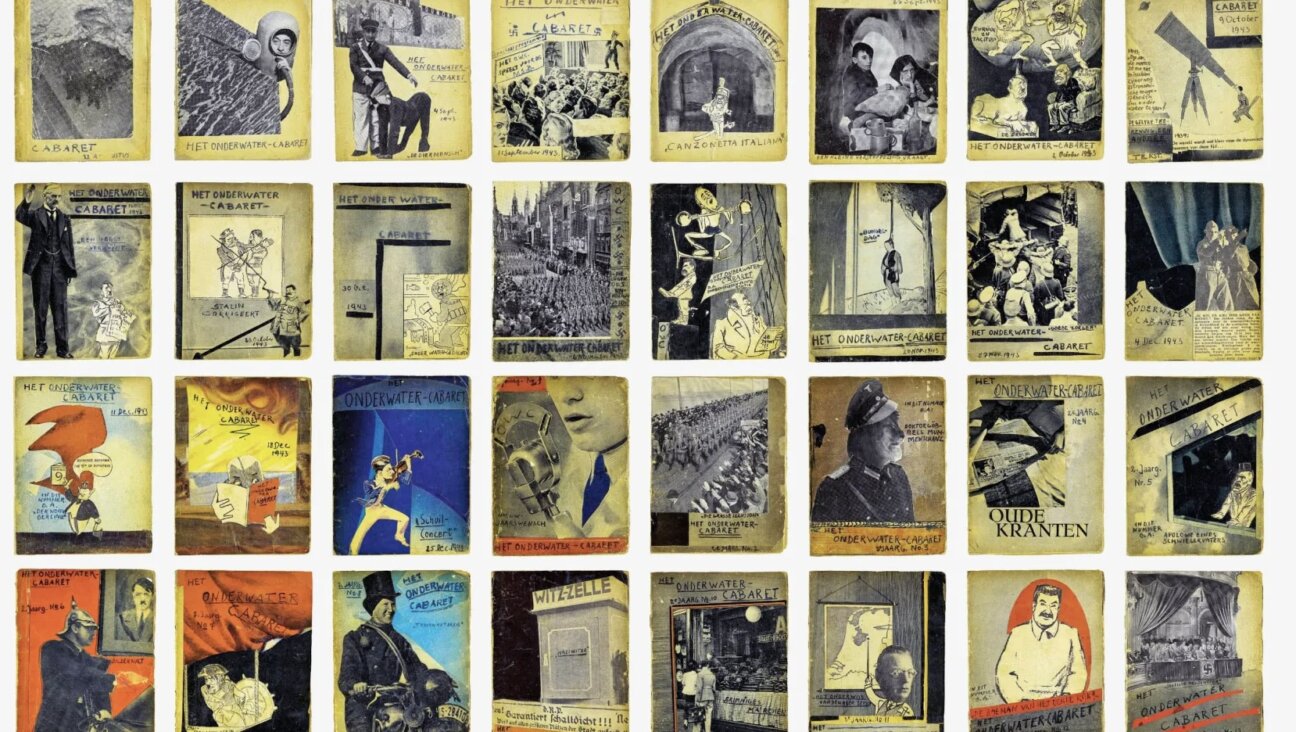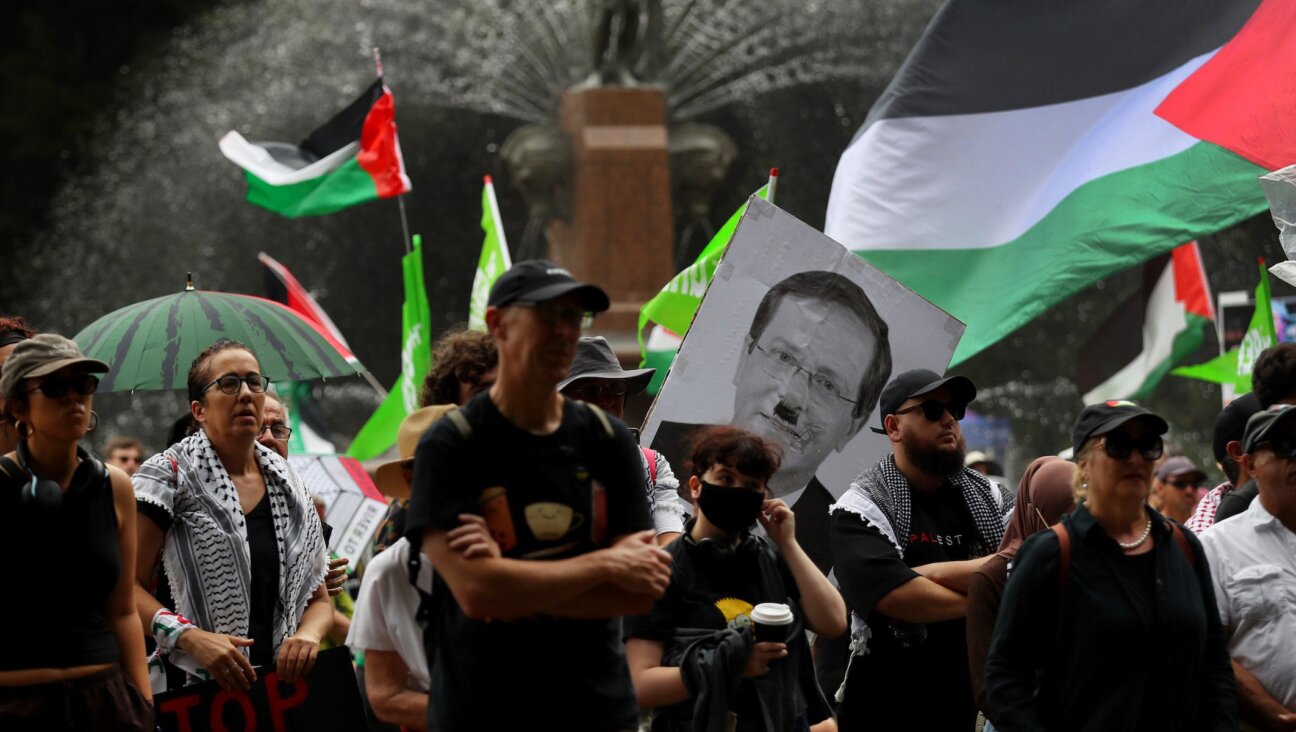If I Forget You, O New Orleans
All those who loved New Orleans — residents who had the privilege of enjoying her gumbo of races and cultures, her architectural beauty and her joie de vivre, as well as those who made frequent pilgrimages to sample her charms — will complete their year of mourning in the coming weeks.
A year of mourning material losses of homes, possessions and entire neighborhoods, and the much deeper spiritual loss of a way of life — even a way of being. Nothing in American history has prepared us for this disaster, nor is there an American tradition of comfort and healing to which we can turn.
Yet, where contemporary society is lacking in guidance, Jewish tradition provides a blueprint for response. The upcoming fast day of Tisha B’Av, on which we commemorate the destruction of the First and Second Temples of Jerusalem, could not have come at a better time for us New Orleans mourners.
After evacuating to Memphis, Tenn., last August, in advance of “The Storm,” my son and I, like so many of our ancestors, went into exile. We moved to Baltimore so that my son could attend high school there, while my husband returned to live and work in New Orleans.
The Baltimore Jewish community was incredibly generous to us, giving life to the maxim, “Kol Yisrael areivim zeh bazeh” (“All Jews are responsible, one for the other”). My son’s Jewish day school and every Jewish organization waived its fees, and a federation leader gave us a rent-free apartment.
As grateful as we were for their compassion, we still felt the pain of separation from family and friends; we missed the rhythms of New Orleans. And so we moved back in late June, to be reunited as a family in our home.
But both our home and the city to which we returned are irrevocably changed.
Our first floor is now gone, stripped down to studs and concrete floor. Walk through the front door and you confront… nothing. Where the pool table once stood, where the Baltimore Orioles memorabilia was hung, where the detailed mahogany paneling graced the walls and where the kitchen in which we stored our Passover dishes was found, there is nothing. Four feet of standing water will do that to a home.
With thousands of homes in similar condition, securing a contractor to do the repair work in a timely fashion requires all the nudging skills one can muster.
Nearly a year after the storm, New Orleans still has a post-apocalyptic sensibility. There is no amount of media coverage that can prepare one for the eerie quiet of block after block of deserted homes and businesses, with their windows busted and their contents out on the streets.
Add to that the absence of basic services that we normally take for granted — regular mail delivery, trash pickup, streetlights — and it feels like we are living in the “wild, wild South.”
Thanks to Katrina, I now have a visceral understanding of the day on which we mourn the destruction of the Temples, as well as an understanding of countless other tragedies throughout Jewish history.
In 586 BCE, the Babylonians destroyed the First Temple, sacked Jerusalem and sent its inhabitants into exile, 1,000 kilometers away in Babylon.
Psalm 137 recounts what happened next. The captors mocked the exiled Jews, forcing them to sing “songs of joy” about Jerusalem. How could the Jews sing joyous songs about their destroyed homeland?
Somehow they summoned the determination to sing. And they went a step further, vowing never to forget Jerusalem, saying, “If I forget you, Jerusalem, may my right hand lose its cunning, may my tongue cling to the roof of the mouth.”
Certainly, New Orleans is not a sacred city as is Jerusalem, yet the Jewish people’s loss experienced more than 2,500 years ago has great resonance. For just as Jerusalem, even when rebuilt, was never the same because its heart — the Temple — was destroyed, so the rebuilt New Orleans never will be the same.
The great food and music of New Orleans are justly renowned, and many restaurants have reopened and some musicians have returned. But I worry that the intangibles that made New Orleans such a balm to the spirit are lost forever.
Will it again be a place where “Laissez les bon temps rouler” (“Let the good times roll”) is a creed to live by, and where an incredibly diverse group of people live side by side in relative harmony? Will New Orleans return as a city in which people know there is more to life than work? Will New Orleans again be a place where thousands of people from all ends of the economic spectrum can rub shoulders, screaming as one for beads at Mardi Gras or grooving to the music at Jazz Fest?
Gut-wrenching uncertainty and despair now accompany the promise of living in New Orleans. Rebuilding a life against the backdrop of inadequate levees and a dysfunctional government takes a certain amount of bravado. The large number of “For Sale” signs is evidence that many people are not willing to take that risk. Does my family have a sufficient appetite for risk to stay in the city? The jury is still out.
However, I am certain of one thing: This Tisha B’Av will find me at synagogue, marking the end of the 11-month mourning period. Enveloped by the comforting presence of fellow mourners, it surely will be cathartic to remember the litany of past catastrophes from which the Jewish people emerged undefeated. From that catharsis will stem the strength to continue rebuilding our shattered city.
On this Tisha B’Av, which falls on the night of Wednesday, August 2, Judaism’s dual emphasis on community and remembrance will come together to bring peace and strength to New Orleans mourners.
Then, a few weeks later, I will take a cue from my ancestors, who were forced into exile and yet still sang songs of joy about their beloved city.
Given the healing power of ritual, let me suggest that on August 29, Katrina’s first anniversary, New Orleans Jews — those who have returned and those who have made new lives elsewhere — as well as lovers of New Orleans everywhere light a candle, wear gaudy Mardi Gras beads and sing a rousing rendition of Eddie DeLange and Louis Alter’s classic, “Do You Know What It Means To Miss New Orleans?”
Do you know what it means to miss New Orleans
And miss it each night and day
I know I’m not wrong, this feeling’s gettin’ stronger
The longer I stay away
Miss them moss covered vines, the tall sugar pines
Where mockin’ birds used to sing
And I’d like to see that lazy Mississippi
Hurryin’ into spring
The moonlight on the bayou, a Creole tune that fills the air
I dream about Magnolias in bloom, and I’m wishin’ I was there.
Gail Naron Chalew is a writer and editor who is rebuilding a life in New Orleans.















